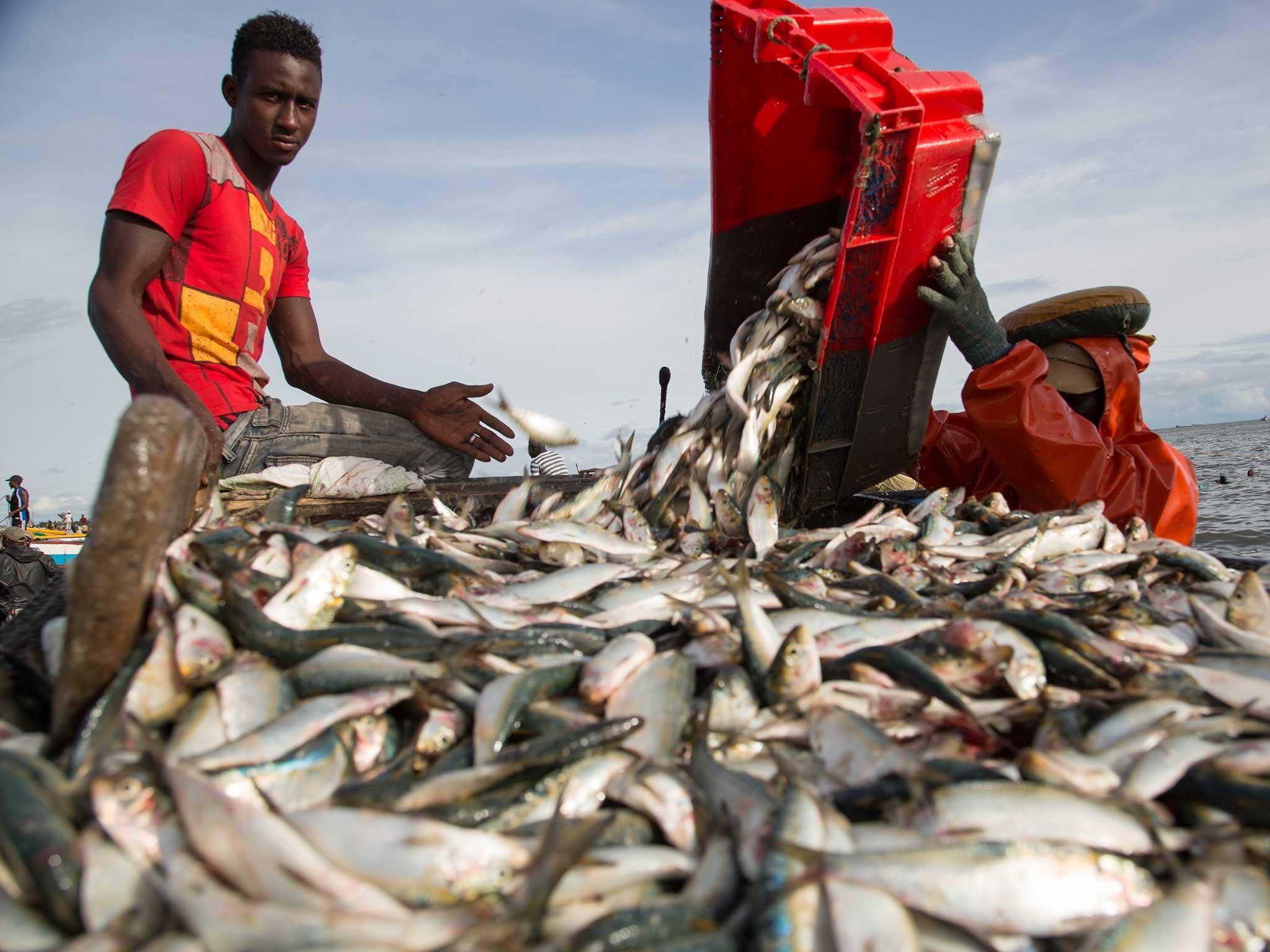Millions of Africans face food insecurity as fish stocks diverted to make animal feed for Western factory farms
Exclusive: Farmed chicken, salmon and pork are all reared using fishmeal, and as global demand for cheap meet rises, producers are casting their net wider to obtain fish for animal feed, even effectively taking them from the mouths of people in West Africa

Vital fish stocks destined for human mouths in West Africa are being pillaged by foreign meat companies to feed pig, chicken and salmon farms on the other side of the world, an investigation for The Independent has found.
Soaring global demand for meat is forcing producers to scour new frontiers in the search to produce animal feed ingredients for their factory farms, with omega 3-rich fish, such as sardines from Senegalese waters, increasingly on their target list.
Russian, Italian and Moroccan investors are among those who have begun to open plants on the shores of the country to cash in on the lucrative trade. But experts fear this new wave of investment could have a devastating impact on millions of people, threatening livelihoods and food security across Sub-Saharan Africa – one of the hungriest places on earth. It is likely that women will be hardest hit because they dominate the workforce within the traditional fish-smoking sectors.
Speaking anonymously, a leading sustainability expert who works closely with major British food-producing companies in sourcing their ingredients said firms “have no idea that everyday products such as smoked salmon may be linked to fishmeal sourced from West African waters”, adding that the situation is “becoming the new Achilles’ heel in their corporate social responsibility policies”.
Another expert, Philip Lymbery, chief executive of leading international farm animal welfare organisation Compassion in World Farming, said: “Far from feeding the planet, this investigation shows how factory farming is creating food insecurity – taking food out of the mouths of hungry people to feed to farm animals.
“It underscores the urgent need to reform industrial meat production and stop such wasteful and inefficient practices.”
The issue centres on fishmeal. Almost every piece of bacon, chicken or smoked salmon on the world’s supermarket shelves has been reared on a diet that contains small but vital quantities of fishmeal and oil.
As conventional supplies of fishmeal are exhausted and meat consumption continues to increase around the world, Africa’s fish stocks are being diverted to supply the demands of the global livestock industry.
The Independent visited Senegal and found a dozen fishmeal plants have been built in recent years along its coastline. More are planned as investors flock to the region in the hunt for cheap sardine and herring to cook into powder and export as animal feed.
But Mariane Tening Ndiaye, a fish trader in Joal, Senegal, said: “We don’t have gold, or petrol or diamonds, the sea is the only resource that our country has.”
Read the full investigation here
Subscribe to Independent Premium to bookmark this article
Want to bookmark your favourite articles and stories to read or reference later? Start your Independent Premium subscription today.

Join our commenting forum
Join thought-provoking conversations, follow other Independent readers and see their replies